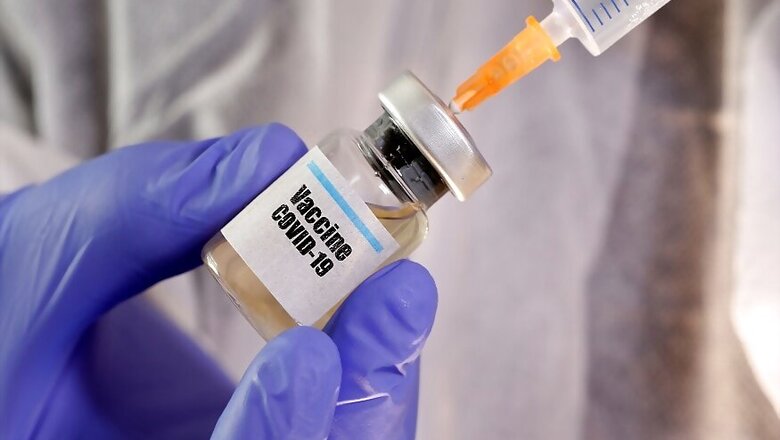
views
While the coronavirus pandemic continues to stay strong, the demand and supply for crucial medical equipment is highly unlikely to disappear.
As nations continue with myriad efforts to contain the COVID-19 outbreak, a global contest has emerged over the increasing shortage of medical supplies. This global shortage of medical personal protective equipment (PPE), drugs and test kits has led to a bidding war and countries using unethical tactics to acquire their share.
They have held back other nations’ supplies, confiscated shipments and have outbid each other at the very last minute. These desperate times are truly translating into desperate measures — to the point of being termed as acts of “modern day piracy”.
While the aim of the virtual G20 summit that took place on 26 March was to show solidarity and bring order in a chaotic environment, the failure to provide transparency and minimise disruption of the global supply chains proved costly for countries in desperate need of medical equipment. A World Health Organization (WHO) spokesperson had warned that a chronic global shortage of PPE would be the most urgent threat to the collective ability to save lives.
In United States, the Donald Trump administration has primarily been accused of effectively pulling off an instance of hijacking a plane full of important medical supplies including 200,000 N95 masks from Bangkok that was originally intended for Germany. The shipment was ordered by Berlin’s police force, but it failed to reach the destination. Andreas Geisel, the Interior Minister for Berlin’s state described the US action as “an act of modern piracy” and warned Washington to follow ethical international trading methods — instead of “wild west” thinking.
The Trump administration under its “America First” policy has spared no effort to secure medical supplies after being accused of initially downplaying the severity of the pandemic. The administration has also forced US-based firms to prioritise the national demand for equipment. In the instance referenced above, the masks were manufactured in China by the US company 3M. Like many other international companies based in China, those 3M masks were meant for exporting to international buyers. However, the “America first” policy sought to reserve American rights over the company’s supplies purely for its domestic consumption.
In another instance, the Trump administration sought to purchase access into a German pharmaceutical company called CureVac. The bid was for it to move its research wing to the United States and develop a COVID-19 vaccine solely for the US. The Trump administration also started a standoff with its northern neighbour. The Canadian Prime Minister Justin Trudeau urged the United States to put an end to cross border competition for medical supplies, and underscored that “trade goes both ways across”.
In a separate instance, French regional leaders of the Île-de-France region, the most populated and most affected region of the country, struggled to acquire PPE supplies, after American buyers outbid them. The French officials complained that the Americans offered three times the price at the Shanghai airport with cash to pay up-front. The Americans then rerouted the plane full of supplies. The French labelled this episode as the guerre des masques — the war of the masks. A former US official specialising in disaster response deemed it to be the “Lord of the Flies: PPE Edition”.
The COVID-19 pandemic is also pressuring other nations around the world into a cutthroat competition for medical resources. The global pandemic has unleashed a war for medical equipment and several other governments are accused of confiscating shipments for their own nation’s use. For instance, in early April, Spanish officials publicly accused Turkey of seizing hundreds of ventilators that were paid for by Spain. Beyond PPE for prevention measures, ventilators are extremely important to help critical coronavirus patients breathe, and a delay in their deliveries can directly lead to loss of lives.
Such instances have also involved Tunisia and Italy. Being the worst hit nation in Europe, Italy was accused of seizing a shipment of medical alcohol which was on its way to the African country. On the other hand, Italy accused the Czech Republic for seizing a shipment of China’s donation of masks bound for Rome. Similarly, in Kenya, a shipment of masks on its way to Germany disappeared in the country mysteriously. It never reached Germany. Details on whether a particular government, an individual or a company was responsible for this are still unknown.
The race for acquiring medical supplies could prove to be never ending, as cases in many countries continue to sky-rocket. It is also becoming increasingly apparent that holding up medical supplies can and will hold a human cost. Moreover, hoarding can also accentuate the issue as poorer nations may be left unprepared and highly vulnerable. Worldwide shortages of medical equipment have caused front-line workers to also fall sick. The unavailability of ventilators in some cases, has forced doctors to make life-or-death decisions.
Even after the world’s biggest economies came together in the recent G20 summit to muster some sort of a concerted effort against COVID19, some countries ended up making questionable decisions to put their respective nations’ necessities first. Hence, the virtual G2O summit failed to institute transparency, muster national commitments, minimise disruptions to trade. In their mad race to serve national interests, it is quite shameful that a group of 20-most powerful nations – which account for 90 percent of global GDP, has failed to reflect collective responsibility.
The author is a Research Intern at ORF Mumbai. The article first appeared in ORF.




















Comments
0 comment